Aromatherapy Essential Oils: Benefits & Uses

Written by
Tran Quang
Reviewed by
Prof. Benjamin Murphy, Ph.D.Essential oils from aromatherapy give emotional, physical, and cognitive benefits naturally.
Lavender and peppermint are some of the most flexible and beginner-friendly essential oils.
Essential oils should always be diluted correctly for skin irritation safety.
During a work week diffuse citrus essential oils, such as lemon, for mood enhancement.
Store essential oils in dark glass bottles and keep them away from heat and sunlight.
Before using essential oils for serious medical conditions, consult a qualified professional.
Article Navigation
This guide explores practical methods for safely harnessing the benefits of essential oils. It clarifies daily routines and guides how to use essential oils safely and effectively. Beginners may wish to try the simpler methods. I'll never forget the first time I used an oil diffuser. It completely changed my morning routine.
Discover the role of aromatherapy essential oils in everyday life. Discover the various uses, from relieving stress to cleaning your home. Safety is emphasized at all times. You certainly will be empowered to use these natural tools.
Key Benefits of Essential Oils
Essential oils derived from aromatherapy offer emotional balance and mood support. Lavender and bergamot oils alleviate daily stress. Citrus oils, such as orange, provide energy and a sense of positivity. Bergamot is kept in my work area for use on difficult days. The aroma is beneficial in establishing a good mood naturally with no ill effects.
Peppermint and eucalyptus are great for physical wellness. Peppermint can soothe tired muscles while gardening, while eucalyptus is great for clear breathing during seasons of change. Tea tree oil promotes a clean skin surface. They became the essential oils of my natural first-aid kit.
Rosemary and lemon essential oils can improve cognitive focus. Rosemary sharpens your focus while you are working. Lemon freshens your mind for early morning routines. I like to diffuse rosemary while I am writing to stay focused on what I am doing. You may find that you complete a lot more tasks while these oils are in use.
Cedarwood and frankincense provide the relaxing and immune-enhancing benefits of rest. Cedarwood is used in the diffuser for bedtime, which helps encourage restful sleep and promotes a deeper sleep pattern. Frankincense is used for promoting calm and tranquil ease during meditation practices. They help promote a natural cycle of the body. Their benefits help promote balance during busy times throughout the week.
Emotional Wellbeing
- Lavender oil may help reduce stress and anxiety levels through its calming effects on the nervous system when diffused or applied topically with carrier oil.
- Citrus oils like orange and bergamot can elevate mood and create positive feelings, making them ideal for morning routines or low-energy periods.
- Frankincense oil supports meditation practices by promoting grounded feelings and emotional balance during mindfulness exercises.
- Chamomile oil offers gentle relief for occasional irritability through its soothing aromatic properties in diffusers or bath blends.
- Ylang ylang oil helps create romantic atmospheres and may support emotional connection when used in couple's massage blends.
- Rose oil promotes self-love and emotional healing through its comforting floral aroma in personal inhalers or room sprays.
Physical Support
- Eucalyptus oil provides respiratory comfort by helping clear nasal passages and supporting easier breathing during seasonal changes.
- Tea tree oil offers natural cleansing properties that help maintain skin clarity when diluted and applied topically.
- Peppermint oil may help soothe occasional head discomfort when applied diluted to temples and back of neck.
- Ginger oil supports digestive comfort through gentle warming effects when used in abdominal massage blends.
- Helichrysum oil promotes skin recovery and may help reduce the appearance of bruising when added to carrier oils.
- Marjoram oil provides comforting warmth for muscles after physical activity through diluted massage applications.
Cognitive Enhancement
- Rosemary oil is associated with improved concentration and memory retention, beneficial for workspaces or study areas.
- Lemon oil creates an uplifting environment that may support mental clarity and alertness during demanding tasks.
- Basil oil helps combat mental fatigue and promotes renewed focus during extended work or creative sessions.
- Peppermint oil provides an energizing aroma that can stimulate alertness and combat afternoon sluggishness.
- Cypress oil supports mental organization through its clarifying scent during planning or decision-making activities.
- Vetiver oil helps maintain attention during lengthy tasks through grounding diffusion in work environments.
Rest and Renewal
- Cedarwood oil promotes relaxation and deeper sleep when diffused in bedrooms before bedtime routines.
- Vetiver oil helps calm restless thoughts through its grounding aroma in evening diffuser blends.
- Marjoram oil supports muscle relaxation when added to post-workout massage oil blends.
- Clary sage oil balances emotions during monthly cycles through gentle diffusion or bath soaks.
- Sandalwood oil creates meditative spaces conducive to restful sleep through evening diffusion rituals.
- Roman chamomile oil eases tension for peaceful sleep when added to pillow sprays or linen mists.
Immune Support
- Oregano oil offers protective properties when diffused during seasonal transitions to support respiratory health.
- Cinnamon oil provides warming defense in home cleaning solutions for kitchen and bathroom surfaces.
- Thyme oil supports healthy immune responses through diluted chest rubs during weather changes.
- Ravensara oil helps maintain clear breathing pathways when added to steam inhalation routines.
- Clove oil offers protective qualities in homemade surface cleaners for high-touch household areas.
- Pine oil creates refreshing indoor environments that may support seasonal wellness through regular diffusion.
Top 10 Essential Oils and Uses
Among aromatherapy essential oils, lavender is rated number one for its versatility and calming effects. Use it in pillow sprays to help with sleep, or combine it with coconut oil to relieve headaches. Do not apply it undiluted around children. I add bergamot to help me get through stressful afternoons.
Peppermint will enliven your mornings and facilitate digestion. Add a few drops to your homemade cleaners and keep your kitchen fresh. But put it high away as it is a "no-no" for kids under 6. I keep a roller-ball in my bag to ward off slump-time!
Tea tree oil has a powerful cleansing effect on skin and surfaces. Use a mixture of vinegar and water to make bathroom sprays. Never diffuse around pets. I spot-treat blemishes with a diluted solution. Lemon oil elevates mood and dissolves grease. Be aware of sensitivity to sunlight after using this product on the skin.
Eucalyptus helps open airways when inhaled as steam. Also, add to laundry rinses. Keep bottles locked up. Frankincense deepens meditation. Blend it into anti-aging serums. Avoid internal use in pregnancy, like I learned the hard way.
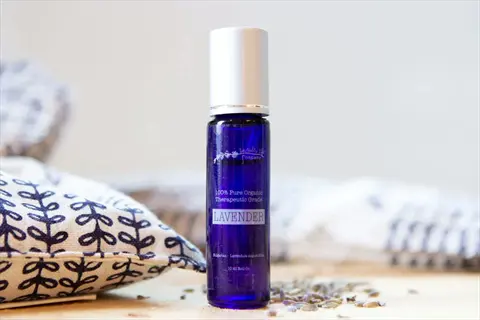
Lavender
- Calming floral aroma ideal for stress reduction and sleep support through diffusion or topical application with carrier oils like jojoba or coconut
- Apply diluted formula to temples and neck muscles for headache relief using a gentle circular massage technique with fingertips
- Add five drops to warm bath water before bedtime for deep relaxation and preparation for restful nighttime recovery
- Create homemade linen sprays by combining with distilled water in spray bottles for calming bedroom environments
- Blend with bergamot essential oil in diffusers for balanced mood enhancement during stressful daytime situations
- Avoid concurrent use with sedative medications due to potential compounded calming effects requiring medical consultation
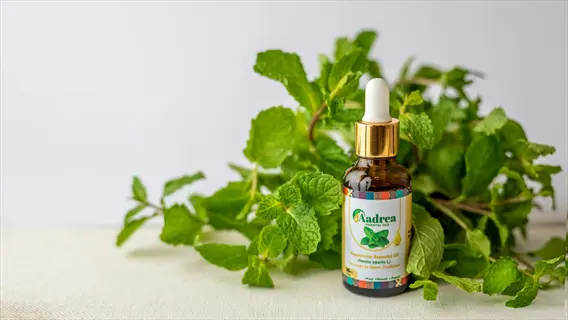
Peppermint
- Invigorating mint scent promotes alertness and mental clarity during demanding work sessions or study periods through diffusion
- Dilute with fractionated coconut oil for soothing abdominal massage to relieve occasional digestive discomfort after meals
- Diffuse three drops during afternoon work hours to combat fatigue and maintain consistent productivity levels naturally
- Add to vinegar-based natural cleaning solutions for effective kitchen surface sanitation and refreshing aromatic properties
- Combine with lemon essential oil in water-based room sprays for energizing home environments during morning routines
- Keep securely stored away from children under six years old due to potential respiratory sensitivity risks
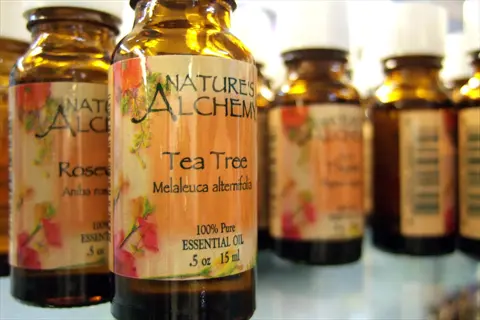
Tea Tree
- Medicinal aroma with powerful cleansing properties suitable for skin applications and household cleaning formulations
- Spot-treat skin blemishes using cotton swab dipped in properly diluted carrier oil mixture twice daily as needed
- Add ten drops per ounce to natural shampoo formulas for improved scalp health and dandruff control during showers
- Use in do-it-yourself surface cleaners combining water, vinegar and essential oils for bathroom sanitation needs
- Blend with lavender essential oil in base oils to create natural first-aid ointments for minor skin irritations
- Never diffuse in homes with pets present due to established neurotoxicity risks for cats and small animals
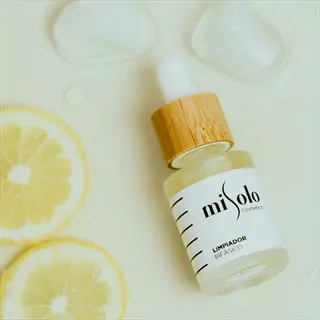
Lemon
- Bright citrus scent uplifts mood and enhances focus during demanding tasks through regular diffusion practices
- Add twenty drops to water-based spray solutions for effective kitchen countertop cleaning and degreasing action
- Diffuse five drops in home offices to improve concentration and maintain mental alertness throughout workdays
- Use in natural wood polish recipes combining olive oil and beeswax for furniture care and aromatic enhancement
- Combine with eucalyptus essential oil in diffusers during seasonal changes for immune system support properties
- Avoid direct sunlight exposure for twelve hours after skin application due to significant photosensitivity concerns
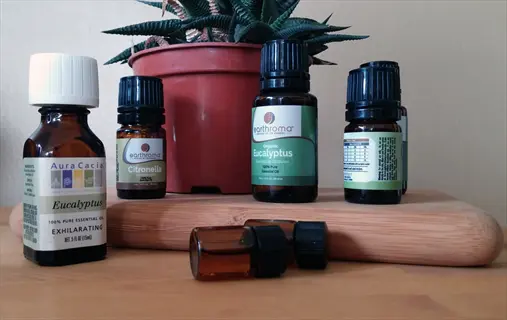
Eucalyptus
- Cooling aroma supports respiratory comfort and clear breathing pathways during seasonal environmental changes
- Add five drops to steam inhalation bowls with hot water for temporary congestion relief and sinus comfort
- Use twenty drops in natural laundry rinse solutions providing antimicrobial properties and refreshing scent
- Diffuse during illness periods to support easier breathing and create healthier indoor air quality environments
- Blend with peppermint essential oil in base salves for soothing muscle relief applications after physical activity
- Keep bottles securely stored away from children and household pets due to established toxicity concerns
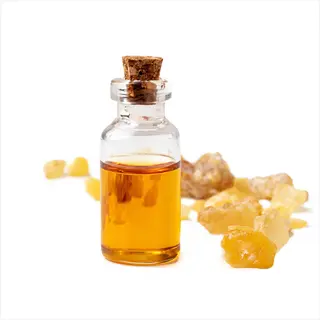
Frankincense
- Earthy resinous scent promotes meditation practice and emotional balance during mindfulness or spiritual activities
- Apply diluted formula in facial serums combining jojoba oil for anti-aging skin benefits and complexion support
- Diffuse during yoga sessions or prayer routines to enhance spiritual connection and centered breathing patterns
- Use in natural perfume formulations providing grounding aromatic blends suitable for daily wear applications
- Combine with sweet orange essential oil for uplifting yet centered diffusion during challenging emotional periods
- Avoid internal use during pregnancy due to potential hormonal effects requiring professional medical guidance
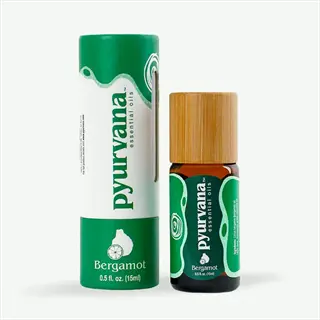
Bergamot
- Citrus-floral aroma reduces anxiety symptoms and elevates mood naturally through regular diffusion practices
- Diffuse in living areas during gatherings to create welcoming ambiance and positive social environments
- Add to unscented body lotions for emotionally uplifting skincare routines with subtle aromatic benefits
- Use ten drops in natural deodorant recipes combining baking soda and coconut oil for fresh scent
- Blend with lavender essential oil in bedtime diffusion rituals preparing for deep restorative nighttime sleep
- Apply topical formulas only during evening hours due to extreme photosensitivity requiring sun avoidance
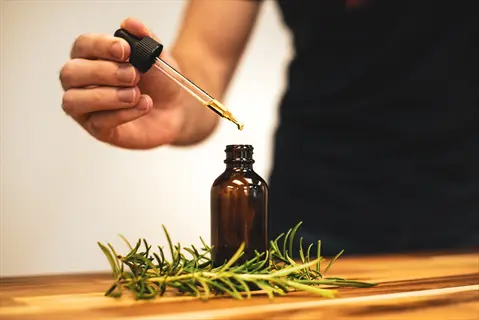
Rosemary
- Herbaceous scent enhances memory recall and mental focus during learning activities through diffusion
- Massage diluted formula into scalp using circular motions to support natural hair growth processes
- Diffuse while studying complex materials for improved concentration and information retention capabilities
- Add to natural degreasing cleaners for effective kitchen grease removal and refreshing aromatic properties
- Combine with lemon essential oil in shower sprays for invigorating morning routines awakening senses naturally
- Avoid therapeutic use if epileptic or during pregnancy due to established stimulant properties and risks
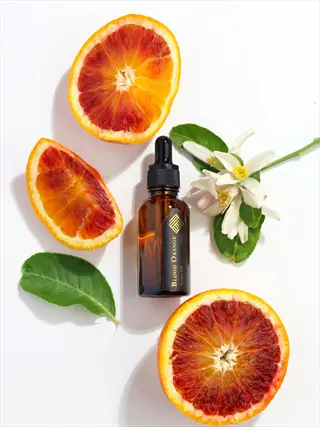
Orange
- Sweet citrus aroma naturally boosts mood and reduces stress levels during challenging daily situations
- Add thirty drops to natural floor cleaning solutions providing fresh scent and gentle cleaning action
- Diffuse in children's rooms during playtime to create cheerful environments with uplifting aromatic properties
- Use in do-it-yourself dish soap formulas combining castile soap for effective grease-cutting properties
- Blend with cinnamon essential oil for festive holiday diffusion creating warm seasonal home atmospheres
- Limit direct sun exposure for eight hours after skin application due to moderate photosensitivity concerns
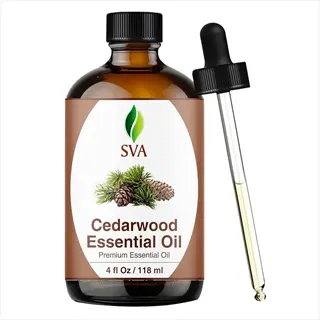
Cedarwood
- Woody grounding scent promotes relaxation and deeper sleep quality through bedtime diffusion practices
- Diffuse in bedrooms thirty minutes before sleep to encourage deeper restorative nighttime recovery cycles
- Add to natural insect repellent sprays combining witch hazel for effective outdoor protection formulas
- Use in beard oil formulations providing woodsy masculine fragrance suitable for daily grooming routines
- Blend with lavender essential oil for calming bedtime diffusion creating peaceful nighttime environments
- Avoid therapeutic applications during pregnancy due to potential hormonal effects requiring caution
Safe Application Methods
Proper dilution protects your skin with aromatherapy essential oils. A good body ratio is to use a 1-2% dilution method with sperm oil. This means 3-5 drops per teaspoon in a carrier oil. In baths, use 5-10 drops mixed first with milk. The facial serum will need half of that strength.
Extra precautions are essential with potent essences for special groups. Pregnant women should avoid using peppermint and rosemary oils. Very young children require extreme dilution. Many oils also pose a hazard to pets. I learned this the hard way because my cat reacted adversely to tea tree oil.
Prevent accidents by smart storage and handling, store bottles in dark glass out of sunlight. Avoid using citrus oils before exposure to sunlight. Patch test first. Mine are kept in a locked cabinet after a mishap with a visitor.
For effective and safe use of diffusing oils, limit sessions to 30-60 minutes. Always ventilate the space well during and for 30 minutes afterward. A water-based diffuser is generally the most effective option in most situations. Do NOT diffuse around sleeping babies. Set timers to ensure safety and avoid overexposure in small quarters.
Proper Dilution Ratios
- Topical applications require 1-2% dilution: mix 3-5 drops essential oil per teaspoon (5ml) carrier oil like coconut or jojoba
- Bath blends should use 5-10 drops maximum mixed with emulsifier like milk or honey before adding to water
- Facial serums need 0.5-1% dilution: 1-2 drops per teaspoon (5ml) carrier oil for sensitive facial skin
- Children's applications require extra dilution: 0.25-0.5% ratio using 1 drop per 4 teaspoons (20ml) carrier oil
- Full body massage oils should not exceed 15 drops total in 30ml (1 oz) carrier oil for adult applications
- Always perform patch tests before widespread use by applying diluted oil to small skin area
Diffusion Safety
- Use water-based diffusers for 30-60 minute intervals with adequate ventilation in the room
- Add 3-5 drops maximum to diffuser reservoirs following manufacturer water level instructions
- Avoid continuous diffusion throughout the day to prevent respiratory irritation and olfactory fatigue
- Never diffuse oils around infants, pregnant women or pets without professional guidance
- Maintain diffusers weekly by cleaning with vinegar-water solution to prevent mold growth
- Choose appropriate oils for public spaces considering potential sensitivities of others
Vulnerable Groups
- Pregnant women should avoid stimulating oils like rosemary and peppermint without medical approval
- Children under 6 should only use gentle oils like lavender at extra-diluted concentrations
- Elderly individuals with sensitive skin require lower dilution ratios and patch testing
- People with respiratory conditions must avoid strong mints and eucalyptus in diffusers
- Epilepsy patients should strictly avoid stimulating oils such as rosemary and sage
- Immunocompromised individuals need medical consultation before using antimicrobial oils
Storage and Handling
- Store essential oils in dark glass bottles away from sunlight and heat sources
- Keep bottles tightly sealed to prevent oxidation and evaporation of volatile compounds
- Use glass or metal containers for mixing - never plastic which may degrade
- Label all blends clearly with contents and creation date for proper rotation
- Store oils out of reach from children and pets in locked cabinets if necessary
- Dispose of expired oils properly through hazardous waste facilities when needed
Emergency Protocols
- For skin irritation: wash area with soap and water, apply carrier oil to dilute
- If eye exposure occurs: flush immediately with cool water for 15 minutes
- For accidental ingestion: contact poison control and provide oil information
- Respiratory distress response: move to fresh air, loosen clothing around neck
- Keep carrier oils accessible to dilute any accidental undiluted applications
- Know emergency numbers for poison control centers in your local region
Everyday Aromatherapy Practices
Begin your exhilarating mornings with aromatherapy essential oils. Place 5 drops of rosemary and 3 drops of lemon on the shower floor to enjoy the stimulating steam. Apply diluted grapefruit oil on the wrists as a natural perfume. Use bergamot and lime in the car diffusers while commuting.
Enhance office concentration using desk diffusers with basil and cedarwood oils. Make personal inhalers to use eucalyptus and peppermint oils. Combine lemon and eucalyptus for room sprays. I use vetiver roll-on oils to promote serenity during meetings. These help maintain productivity stability without the jitters.
Relax in the evenings by taking lavender baths in Epsom salts. Use pillow mists prepared with Roman chamomile. Massage the feet with diluted marjoram oil. Use frankincense in the diffuser during sleep, just as you would meditate each night. The rituals prepare the body for deep sleep.
Revitalize your home with creative applications. Use lemon and tea tree oil for cleaning sprays. For carpet cleaning, sprinkle baking soda with lavender essential oil and then vacuum. Freeze vinegar with lime in cubes for garbage disposals. I refresh my drawers with cotton balls soaked in cedarwood oil.
Morning Energizing
- Shower routine: Add 5 drops rosemary and 3 drops lemon to shower floor for invigorating steam inhalation
- Diffuser blend: Combine 3 drops peppermint and 3 drops orange in diffuser for 30 minutes to boost alertness
- Topical application: Apply diluted grapefruit oil (1% in 1 tsp/5ml jojoba) to wrists as natural perfume
- Car diffuser: Use portable diffuser with 2 drops bergamot and 2 drops lime for commuting focus
- Laundry boost: Add 10 drops lemon oil to wool dryer balls for fresh-scented energizing clothing
- Shower gel: Mix 2 drops bergamot into unscented shower gel for mood-enhancing morning baths
Workday Focus
- Desk diffuser: Run 3 drops basil and 2 drops cedarwood for concentration during demanding tasks
- Inhaler stick: Make personal inhaler with 10 drops rosemary and 5 drops peppermint for quick focus
- Wrist roll-on: Apply diluted vetiver and frankincense blend (2% in 1 tsp/5ml almond oil) for stress
- Room spray: Mix 20 drops lemon and 10 drops eucalyptus in 100ml (3.4 oz) water for refreshing office
- Hand sanitizer: Add 15 drops tea tree to aloe gel base for cleansing with cognitive benefits
- Desk mat: Place 1 drop peppermint on cloth under keyboard for subtle alertness during long meetings
Evening Relaxation
- Bath ritual: Blend 5 drops lavender and 3 drops chamomile with Epsom salts for muscle relaxation
- Diffuser blend: Combine 4 drops bergamot and 2 drops cedarwood for calming pre-sleep atmosphere
- Pillow mist: Spray linen with 10 drops roman chamomile in 50ml (1.7 oz) water for restful sleep
- Foot massage: Use diluted marjoram oil (2% in 1 tsp/5ml coconut) for post-workday tension relief
- Meditation aid: Diffuse frankincense during mindfulness practice for grounding spiritual connection
- Bath oil: Add 4 drops ylang ylang to 1 tbsp (15ml) carrier oil for luxurious stress-relieving soaks
Home Environment
- Cleaning spray: Mix 30 drops lemon and 20 drops tea tree in vinegar-water solution for kitchen surfaces
- Carpet refresh: Sprinkle baking soda with 15 drops lavender before vacuuming for calming room scent
- Garbage disposal: Freeze vinegar cubes with 10 drops lime for fresh-smelling drain maintenance
- Vacuum filter: Add 5 drops pine oil to vacuum bag for whole-house freshening during cleaning
- Humidifier boost: Place 3 drops eucalyptus on humidifier pad for respiratory support in dry rooms
- Drawer sachets: Place cotton balls with 5 drops cedarwood in drawers for natural moth repellent
Personal Care
- Shampoo boost: Add 10 drops rosemary per ounce (30ml) for scalp health and hair growth stimulation
- Facial serum: Blend 2 drops frankincense in 1 tsp (5ml) jojoba oil for nighttime anti-aging treatment
- Body lotion: Mix 5 drops lavender into unscented lotion for calming moisturizing after showers
- Oral rinse: Add 1 drop peppermint to water for mouth freshness without alcohol content
- Bathroom diffuser: Run 3 drops lemongrass in small diffuser for natural deodorizing effect
- Hand scrub: Combine 10 drops orange with sugar and coconut oil for uplifting exfoliating scrub
Choosing and Storing Oils
Understand your types of oils and how to use aromatherapy essential oils properly. Steam-distilled essential oils, such as lavender, offer the pure therapeutic benefits needed. Absolutes, such as jasmine, are produced through solvent extraction. CO2 extracts are necessary for retaining the delicate compounds present in blue azulene of chamomile. Various uses and effects are evident.
Proper storage greatly prolongs the shelf life of oil. Store the bottles in opaque glass, away from sunlight and heat, at a temperature between 50°F and 68°F (10 °C to 20°C). Store the bottles full or nearly full to minimize air space. I store mine according to their use to reduce handling.
Ensure quality by thorough investigation. Search labels for botanical names, ed. Lavandula angustifolia. We require some GC sympathetic testing to be done and reports generated. Check for organic certification from USDA EcoCert. Genuine oils do not leave greasy spots on paper tests. Trust your nose also!
Before using oils, check for damage first. Signs of cloudiness in oils indicate oxidation, thickened ranges indicate evaporation, and rancid smells indicate spoilage. Citrus oils have a shelf life ranging from 1 to 2 years, while woods like sandalwood can last 4-5 years. I date up my oil bottles upon opening.
Quality Indicators
- Verify botanical names on labels (e.g., Lavandula angustifolia for true lavender)
- Check for GC/MS testing documentation ensuring purity and composition analysis
- Identify organic certification seals from reputable organizations like USDA or ECOCERT
- Examine packaging: dark glass bottles (amber/cobalt) prevent light degradation
- Assess viscosity: true essential oils should not leave greasy residue on paper
- Evaluate aroma complexity: authentic oils have layered scents that evolve
Oil Type Differences
- Essential oils: Steam-distilled concentrates like lavender and eucalyptus
- Absolutes: Solvent-extracted delicate florals like jasmine and rose
- CO2 extracts: Supercritical fluid extraction preserves fragile compounds like in chamomile
- Hydrosols: Aromatic waters from distillation like rose water for gentle applications
- Infused oils: Carrier oils infused with botanicals like calendula for topical use
- Diluted blends: Pre-mixed formulas with carrier oils for safe direct application
Optimal Storage Conditions
- Temperature control: Maintain between 50-68°F (10-20°C) avoiding heat fluctuations
- Light protection: Store in dark cabinets away from direct sunlight exposure
- Humidity management: Keep in dry environments below 60% relative humidity
- Oxygen exposure: Fill bottles to near capacity to minimize air space oxidation
- Container materials: Use glass or aluminum containers instead of plastic
- Organization: Group oils by frequency of use to minimize repeated exposure
Shelf Life Management
- Citrus oils: 1-2 years maximum shelf life due to rapid oxidation
- Floral absolutes: 2-3 years when properly stored in cool environments
- Woods and resins: 4-5 years longevity like sandalwood and frankincense
- CO2 extracts: 3-4 years stability from advanced extraction methods
- Expiration tracking: Label bottles with opening dates using waterproof markers
- Degradation signs: Cloudiness, viscosity changes, or rancid odors indicate spoilage
Safety Considerations
- Childproofing: Install magnetic locks on essential oil storage cabinets
- Pet safety: Store oils in separate sealed containers away from animal access
- Fire prevention: Keep oils away from open flames and electrical equipment
- Disposal protocols: Mix expired oils with carrier oil before trash disposal
- Spill management: Use clay-based absorbents instead of paper towels
- Travel precautions: Use leak-proof containers with secure seals during transport
5 Common Myths
Essential oils are safe to apply directly to skin without dilution because they're natural
Undiluted essential oils can cause severe skin irritation, chemical burns, or allergic reactions due to their high concentration. Always dilute with carrier oils like jojoba or coconut at proper ratios (1-2% for adults) before topical application to ensure safe usage and avoid adverse reactions.
Ingesting essential oils is safe and adds to their therapeutic benefits
The internal use of essential oils can harm mucous membranes, produce organ toxicity and have dangerous interactions with medications. Only certified aromatherapists should advise internal usage, and then only under strict guidelines. For home use, stick to approved external methods of use such as diffusion and diluted topical application.
All essential oils are safe for use around pets including cats and dogs
Many essential oils like tea tree, certain citrus oils (e.g., bergamot), and peppermint contain compounds toxic to pets that can cause neurological damage, liver failure, or respiratory distress. Always research pet-safe oils, use them in well-ventilated areas away from animals, and consult veterinarians before diffusing oils in pet-inhabited spaces.
Increased efficacy and therapeutic value are purported by using additional essential oil drops
Higher concentrations will also increase the chances for sensitization and headaches and other side affects without the gain of greater efficacy. Doubling the existing dilution (3-5 drops to a diffuser or 1-2% skin dilution) will insure the best results are achieved without the increased above mentioned trouble, plus long-term sensitivity on potential new clients.
Essential oils can take the place of prescribed medications for serious diseases.
Essential oils can complement a wellness routine through aromatherapy techniques, they lack the research needed to support the treatment of such serious diseases as cancer, diabetes and infections. They should in no way replace treatment prescribed by a physician. Be sure to consult a physician before using essential oils in conjunction with prescribed treatments and medicines so as to avoid such misfortunes as dangerous interactions and delays of treatment.
Conclusion
Essential oils in aromatherapy can provide complete support for daily wellness solutions. They promote proper emotional balance and foster greater clarity in thought processes. These plant extracts will enhance your self-care programs. Start with lavender or lemon for a gentle introduction. I began with these oils several years ago.
Keep in mind the safety procedures we talked about. They need to be diluted before applying them to your body. They should be kept out of the reach of children, as well as out of the sunlight. Some things should not be used on pets. Consult your physician if you have any health concerns. I have a supply of carrier oils for immediate dilution.
Get comfortable with beginner oils like lavender and lemon. Use simple diffusion and diluted roll-ons first. Noticing how they fit into your existing practices. Lavender with fractionated coconut oil was my first blend, and it remains part of my nightly routine.
Consult your physician for all medical issues. Although aromatherapy essential oils enhance your health, they do not substitute for medical treatment. Always discuss aromatherapy with your healthcare provider, especially if you are using prescription medications. As I've learned the hard way, using the safest practices is always the best approach.
External Sources
Frequently Asked Questions
What are the top essential oils for aromatherapy beginners?
Lavender, peppermint, lemon, tea tree, and eucalyptus are ideal starter oils. These versatile aromatherapy essential oils offer relaxation, energy, mood enhancement, cleansing, and respiratory support while being relatively easy to use with minimal safety concerns.
How can I safely use essential oils in my daily routine?
Essential oils require proper dilution and application methods for safe use:
- Diffuse for 30-60 minutes in well-ventilated spaces
- Dilute with carrier oils before skin application (1-2% ratio)
- Avoid direct ingestion without professional guidance
- Perform patch tests before widespread use
- Store away from children and pets
What's the difference between essential oils and fragrance oils?
Essential oils are natural plant extracts with therapeutic properties obtained through distillation or cold pressing, while fragrance oils are synthetic recreations focused solely on scent. Aromatherapy essential oils provide holistic benefits beyond fragrance, unlike artificial alternatives.
Can essential oils replace medical treatments?
No, aromatherapy essential oils complement but cannot replace medical treatments. They support wellness through stress reduction and mood enhancement, but serious conditions require professional healthcare. Always consult doctors before using oils alongside medications to avoid interactions.
How do I choose high-quality essential oils?
Identify pure aromatherapy essential oils through these indicators:
- Botanical names on labels (e.g., Lavandula angustifolia)
- Dark glass bottling to prevent light degradation
- GC/MS testing documentation available
- Organic certification seals
- Complex, evolving natural aromas
- No greasy residue on paper tests
Are essential oils safe for pets?
Many essential oils pose risks to pets. Avoid diffusing tea tree, citrus, or peppermint around animals. Always research pet-safe oils like lavender in minimal quantities and consult veterinarians before introducing any aromatherapy essential oils in pet-inhabited spaces.
What are effective ways to use essential oils at home?
Practical home applications for aromatherapy essential oils include:
- Diffusers for mood enhancement
- Natural cleaning solutions with lemon or tea tree
- Linen sprays with lavender for better sleep
- Dryer balls with citrus oils for fresh laundry
- Humidifier pads with eucalyptus for respiratory support
How long do essential oils remain effective?
Shelf life varies significantly based on oil type and storage:
- Citrus oils: 1-2 years maximum
- Floral absolutes: 2-3 years
- Woods/resins: 4-5 years
- CO2 extracts: 3-4 years
- Proper storage in cool, dark locations extends longevity
Can essential oils help with work concentration?
Yes, certain aromatherapy essential oils enhance focus. Diffuse rosemary or basil during work hours, apply diluted peppermint to wrists, or use personal inhalers with citrus blends. These stimulate mental clarity without caffeine-like side effects when used properly.
What safety precautions are essential for oil users?
Critical safety measures for aromatherapy essential oils include:
- Proper dilution ratios for skin applications
- Avoiding sun exposure after citrus oil use
- Keeping oils away from eyes and mucous membranes
- Childproof storage solutions
- Emergency protocols for accidental exposure
- Professional consultation for medical conditions

